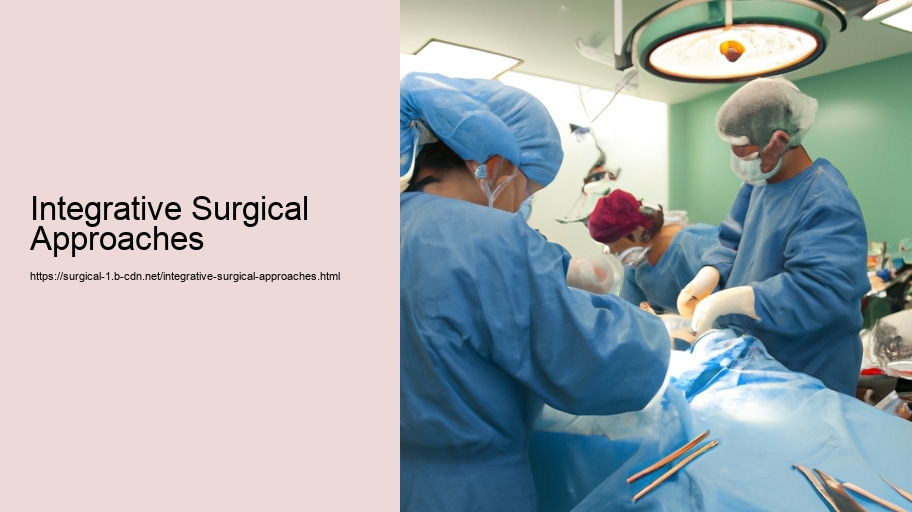Integrative Surgical Approaches: Harmonizing Modern Medicine with Holistic Health Practices
In the ever-evolving landscape of modern medicine, the concept of integrative surgical approaches has emerged as a beacon of holistic health care. This innovative paradigm seeks to blend the precision and advancements of conventional surgery with the comprehensive perspective of integrative medicine. It is an approach that recognizes the complex interplay between a patient's body, mind, and spirit, and seeks to optimize wellness not only through the technical success of an operation but also by supporting the overall well-being of the individual.
The cornerstone of integrative surgical approaches is the acknowledgment that patients are more than just their anatomical parts or the diseases they seek to overcome. Each person brings a unique life story, a set of beliefs, and a personal health journey that can significantly influence surgical outcomes. Thus, the integrative surgeon is not only a technician of the human body but also a compassionate partner in the patient's healing process.
Preoperatively, integrative surgical approaches may involve consultations with nutritionists, physical therapists, and mental health professionals. These experts work collaboratively to prepare the patient's body and mind for the stress of surgery. Nutritional optimization, for example, ensures that the patient's body has the necessary building blocks for recovery, while physical therapy can enhance mobility and strength, reducing the risk of postoperative complications. Mental preparation, including stress reduction techniques such as mindfulness and visualization, can alleviate anxiety and promote a positive mindset conducive to healing.
During the surgical procedure itself, the integrative approach may incorporate techniques to minimize trauma and enhance recovery. Surgeons may use minimally invasive methods when appropriate, reducing pain and shortening hospital stays. Intraoperative measures such as precise anesthetic management and advanced monitoring can help tailor the surgery to the patient's individual needs, potentially improving outcomes and reducing the risk of complications.
The postoperative phase is critical in integrative surgical approaches. Here, the focus is on supporting the body's natural healing processes. Pain management strategies may include not only conventional medications but also alternative modalities such as acupuncture or massage therapy. Physical rehabilitation is designed to regain function and independence, while psychological support helps patients cope with the emotional aftermath of surgery.
Perhaps one of the most salient aspects of integrative surgical approaches is the emphasis on patient education and empowerment. Patients are encouraged to take an active role in their care, making informed decisions about their treatment options. They are also taught self-care techniques that can accelerate recovery and prevent future health issues. This educational aspect extends beyond the immediate perioperative period, fostering a long-term partnership between the patient and healthcare providers.
In essence, integrative surgical approaches represent a shift from a disease-centered model of care to a health-centered one. By combining the best of conventional surgery with a broader understanding of health and healing, this approach aims to deliver not only life-saving interventions but also life-enhancing experiences. It is a testament to the notion that the art of surgery is not merely about fixing what is broken but also about nurturing the whole person on their journey to recovery.
In conclusion, as we look towards the future of healthcare, integrative surgical approaches offer a promising avenue for advancing the quality and humanity of surgical care. By embracing the complexity of human health and the individuality of each patient, surgeons and healthcare teams can provide care that is not only technically excellent but also profoundly healing. It is an approach that honors the intricate tapestry of life and the resilience of the human spirit, offering hope and healing in its most comprehensive form.
